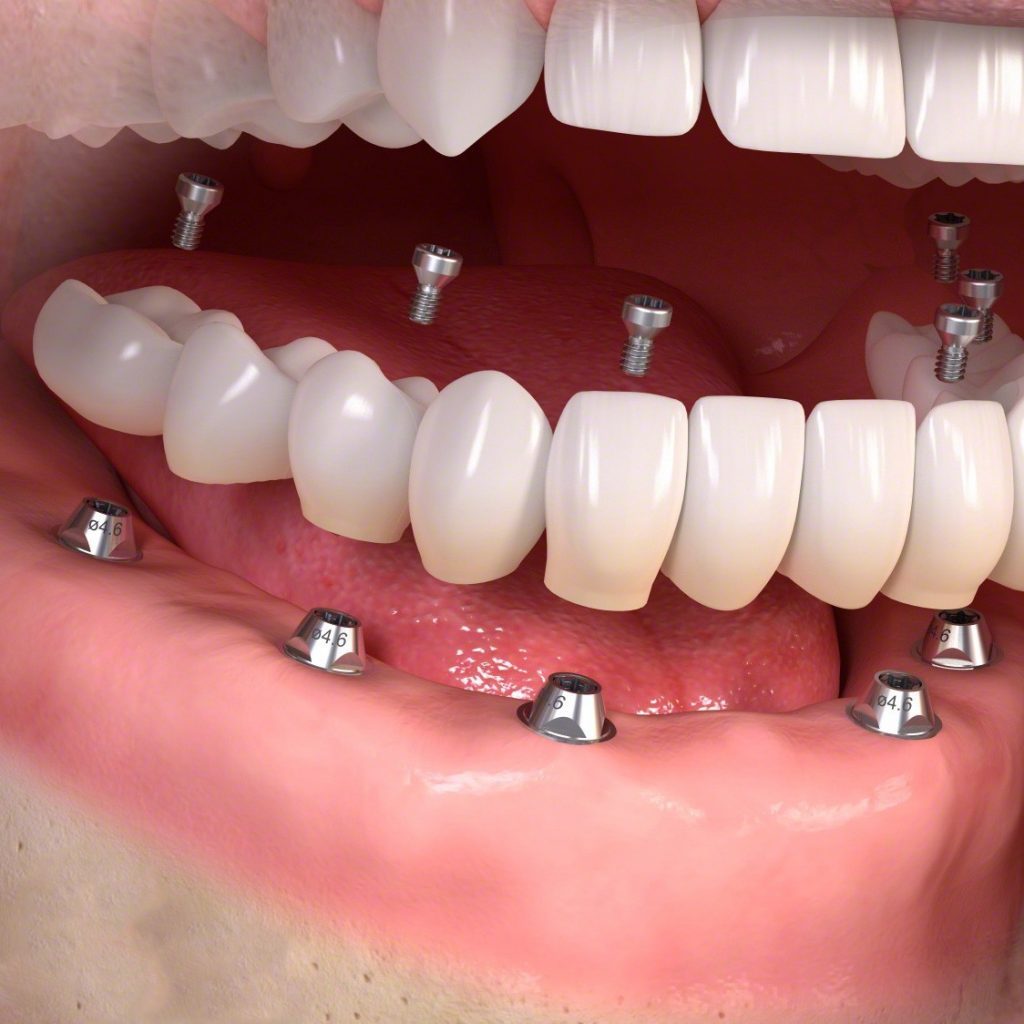
The Pros and Cons of Dental Implant Materials
When you think of dental implants, metal and ceramic are probably the first materials that come to mind. These are the most common implant materials because they offer strength, durability, and long-lasting performance. However, there are other options as well. The downside is that they may not be quite as common or widely used yet. A more in-depth look at some of the pros and cons of these alternative implant materials can help you decide which ones to use for your next dental restoration project.
Did you know that a very small number of people of the same age have missing teeth? What rarely, rarely do I pay attention to the fact that this is a serious problem! Deficiencies remaining without the need to maintain until the bone disappears, then it is necessary to rebuild the jaw bone. In order not to support it, take care to fill in the gaps. Update to be supplemented with additions as part of Implanty Poznań services.
Titanium: The lightest implant material
Perhaps the most important aspect of any implant material is its weight. It must be durable and strong, but it cannot be heavier than the tooth it is replacing. Titanium is the lightest material available for dental implant use. It is often used when the patient weighs less than 90 pounds. This makes it an ideal choice for young patients and those who may have limited weight-bearing capacity. There are a few other factors that make titanium the perfect choice for dental implants. It doesn’t absorb odors, it doesn’t corrode, and it doesn’t change color over time.
Ceramics: Stronger than metal
Ceramic is an alternative implant material that is stronger than metal. It is also much lighter than titanium. While titanium is a strong material on its own, it is even more durable when combined with ceramic. Ceramic is a solid material that is sometimes used as a coating on metal. These practices have been combined to create a hybrid material that combines both metal and ceramic properties. This hybrid material can achieve the desired strength and durability of metal, but it is lighter than titanium and may be suitable for patients who have limited weight-bearing capacity.
Zirconium oxide: Costlier than titanium and ceramics
Like titanium, zirconium oxide is a metal. It is usually combined with oxides like silicon, manganese, and copper to create a hybrid material that is much stronger than pure titanium. Zirconium oxide is also more expensive than titanium and ceramic, but it has several advantages. It is extremely strong and durable, and it doesn’t absorb odors. This makes it a great choice for implants in teeth that will be near the mouth, like the front teeth. It is also ideal for implants that are more than one to two years old. The price and strength make zirconium oxide an excellent choice when replacing less resistant implants.
Composite resins: A hybrid of metal and resin
Composite resins are a hybrid of metal and resin. They are usually combined with zirconium oxide, titanium, or other metals. These materials are strong and lightweight. They are comparable to metal, but they are less susceptible to corrosion and may be a better choice for implants in less active teeth. Composite resins are usually used to repair older teeth that have broken or cracked enamel. These materials have a lower risk of tooth decay than a metal implant, and they are less likely to cause a metal allergy. Additionally, composite resins are more affordable than titanium and ceramic.
Concrete: A durable implant alternative
A dental implant made from concrete is a durable alternative to metal, titanium, or ceramic. This implant material is a mix of cement, water, and sand. The mix is then mixed with additives to create a concrete that is thick and durable enough to support a crown. Concrete is the most durable of all of the implant materials. However, it is also the heaviest. Some patients are best suited to this implant type because they have limited weight-bearing capacity. Another reason to use concrete is for aesthetic reasons. A crown made from a durable material may be more appealing than a metal crown.
Diamonds: The rarest implant material
Diamonds are a very rare implant material. They are usually used in cases of very advanced oral diseases, such as alveolar bone resorption. This disease makes the bones extremely soft and porous. A dentist would have to use diamonds to drill into the soft tissue and implant the implant. This implant material is not suitable for healthy teeth.
Which Dental Implant Material is Right for You?
If you are considering dental implants, you may want to take a closer look at the pros and cons of the implant materials. Consumers often choose a particular implant type based on the amount of research they do. However, it’s important to remember that not all implant materials are created equal. A reputable dentist can help you choose the right dental implant material for your specific needs.




